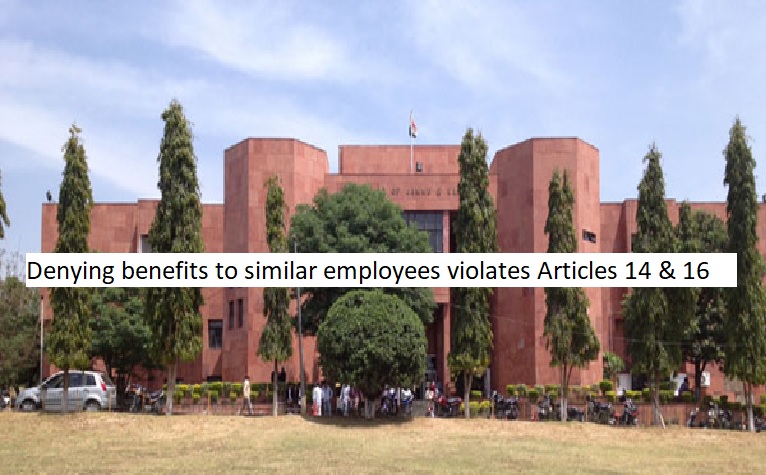


The recent pronouncement by the High Court of Jammu and Kashmir and Ladakh has significant implications for the equitable treatment of employees in the realm of legal relief. In essence, the court has asserted a principle of uniformity, emphasizing that when a specific set of employees secures relief through legal proceedings, individuals in identical situations should be accorded similar treatment by extending comparable benefits to them.
The foundational premise of this judicial assertion lies in the pursuit of fairness and equal justice under the law. The court has, in no uncertain terms, emphasized that the application of legal relief should not be arbitrary or discriminatory. Instead, it should adhere to the principle of equality before the law, a fundamental tenet enshrined in the constitutional fabric of India.
The crux of the court's reasoning is grounded in the concept that once a precedent is set by the judiciary in favor of a group of employees, the same set of circumstances should be met with consistency. This implies that when faced with identical situations, irrespective of the timing of approaching the court, employees should receive akin benefits. The court's stance underscores the importance of treating like cases alike to ensure a just and uniform application of legal remedies.
The clarification provided by the court is particularly noteworthy in dispelling any ambiguity regarding the extension of benefits. It explicitly states that the granting of such benefits should transcend the timeline of approaching the court. This temporal nuance is crucial as it prevents the arbitrary denial of benefits based on when an employee seeks legal recourse. The court's pronouncement reaffirms the principle that the right to equitable treatment should not be contingent upon the chronological order of approaching the judicial system.
Moreover, the court's emphasis on identical situations implies a nuanced understanding of the intricacies of individual cases. It recognizes that the essence of justice lies not only in providing relief to the specific litigants but in establishing a precedent that ensures consistent treatment for all similarly situated individuals. This approach aligns with the broader jurisprudential goal of creating a legal framework that fosters fairness, predictability, and adherence to established norms.
The ruling also reflects a commitment to upholding constitutional principles, specifically invoking Articles 14 and 16. Article 14 guarantees equality before the law, emphasizing that the state shall not deny any person equality before the law or equal protection of the laws within the territory of India. Article 16 further extends this principle to matters of public employment, prohibiting discrimination on grounds of religion, race, caste, sex, descent, place of birth, residence, or any of them.
In conclusion, the recent judgment by the High Court of Jammu and Kashmir and Ladakh serves as a beacon for the consistent and equitable application of legal relief. By underscoring the importance of treating similarly situated individuals alike, regardless of the timing of approaching the court, the decision reinforces the principles of justice, fairness, and constitutional equality. This nuanced approach not only provides clarity in the interpretation of legal remedies but also upholds the foundational values embedded in the Indian legal system.
TAGS: Ladakh Legal relief Equitable treatment Precedent Consistency Equality before the law Constitutional principles Articles 14 and 16